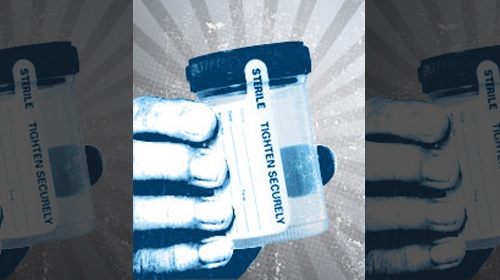Just as We Suspected: Florida Saved Nothing by Drug Testing Welfare Applicants


Last year Florida became the first state to pass and fully implement a bill mandating suspicionless drug testing of all applicants for Temporary Assistance for Needy Families (TANF). The law mandated that all applicants pay for the cost of the drug test themselves, and that they be reimbursed if their test came back negative. The law was in effect for a mere four months before the ACLU of Florida filed a lawsuit and a federal court blocked the law, saying it was unconstitutional.
Today the New York Times released the most comprehensive data yet on how the law fared during the short period of time it was in effect. We already knew that the law was a failure; what we didn't know was just how much of a failure it was.
In the four months that Florida's law was in place, the state drug tested 4,086 TANF applicants. A mere 108 individuals tested positive. To put it another way, only 2.6 percent of applicants tested positive for illegal drugs — a rate more than three times lower than the 8.13 percent of all Floridians, age 12 and up, estimated by the federal government to use illegaldrugs. Now might be a good time to remind folks that in the debate over the bill, Gov. Rick Scott argued that this law was necessary because, he said, welfare recipients used drugs at a higher rate than the general population.
The utter absurdity of this law is magnified when you realize how much it cost the state of Florida to run this program. The data released today shows that Florida spent $118,140 reimbursing the overwhelming number of Florida TANF applicants — 3,938 to be exact — who tested negative for drugs. That is far more than any money saved by the program, at a net cost to the State of over $45,000. And that's only part of the cost to the state to run this program. There are also the administrative costs, staff costs, and, of course, the litigation costs. Furthermore, the testing program didn't deter individuals from applying for help — an internal document about TANF caseloads revealed that, at least from July through September, the policy did not lead to fewer cases.
Despite the complete failure of this program to unearth anything other than the fact that there is no overwhelming drug problem amongst welfare applicants, the state of Florida continues to defend this law. And unfortunately, other states have followed Florida's ill-informed lead. Over 25 states introduced welfare drug testing legislation this year. You'd think that the court rulings and high costs might have logically stopped these bills, but they have not. In fact, just this Monday, Georgia Gov. Nathan Deal signed a bill into law that is very similar to Florida's, mandating all TANF applicants in Georgia be drug tested before being eligible to receive benefits.
As long as states keep fighting to pass and keep these unconstitutional and costly programs in place, the ACLU will be there to keep fighting back.
(Originally posted on Huffington Post.)
CORRECTION: An earlier version of this post stated that TANF recipients were reimbursed for the cost of the drug test if the result was positive. That was incorrect. They are reimbursed if the result is negative. Thanks to @smirish for pointing this out on Twitter!
Learn more about drug testing: Sign up for breaking news alerts, follow us on Twitter, and like us on Facebook.

